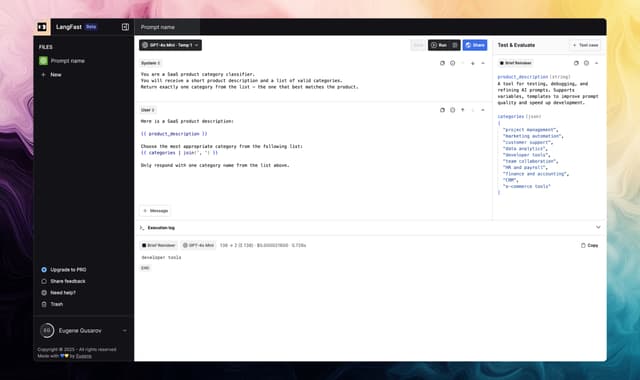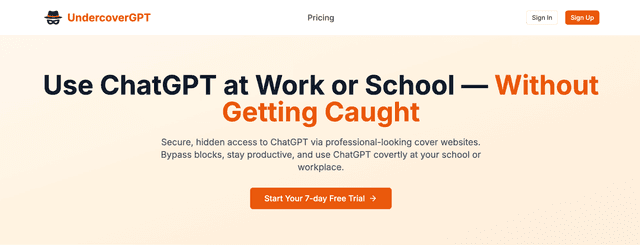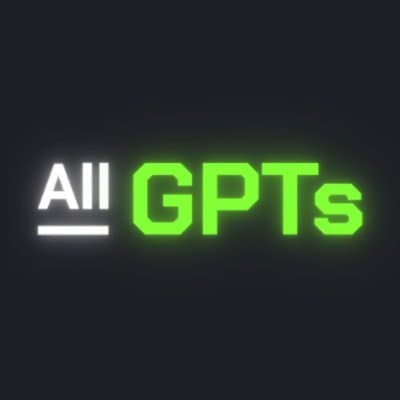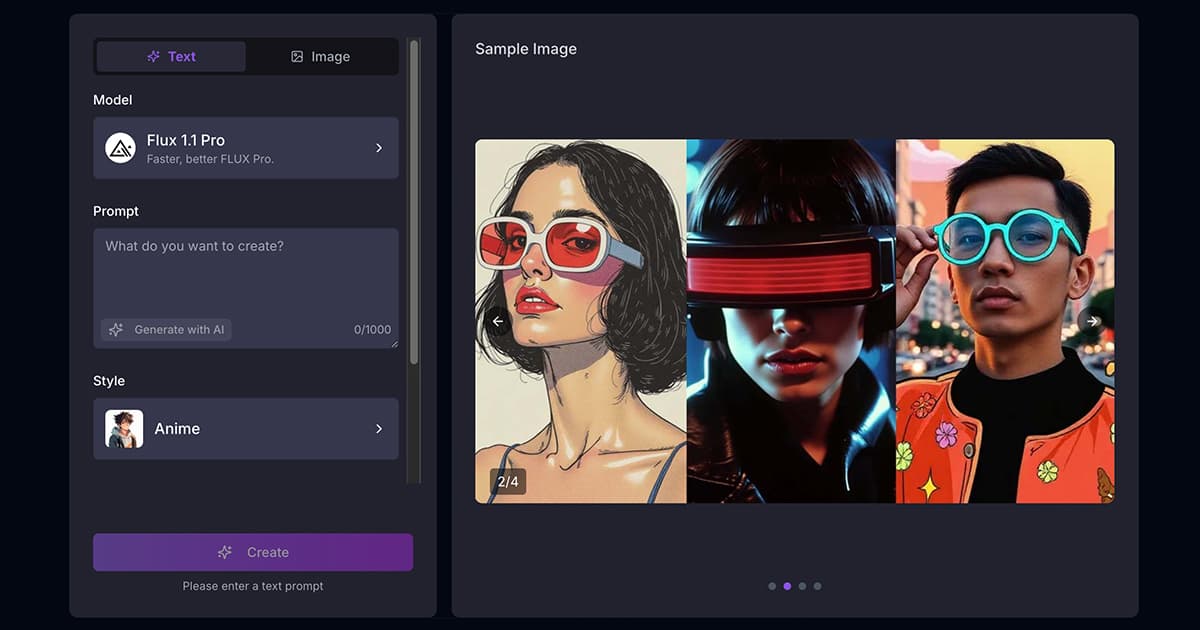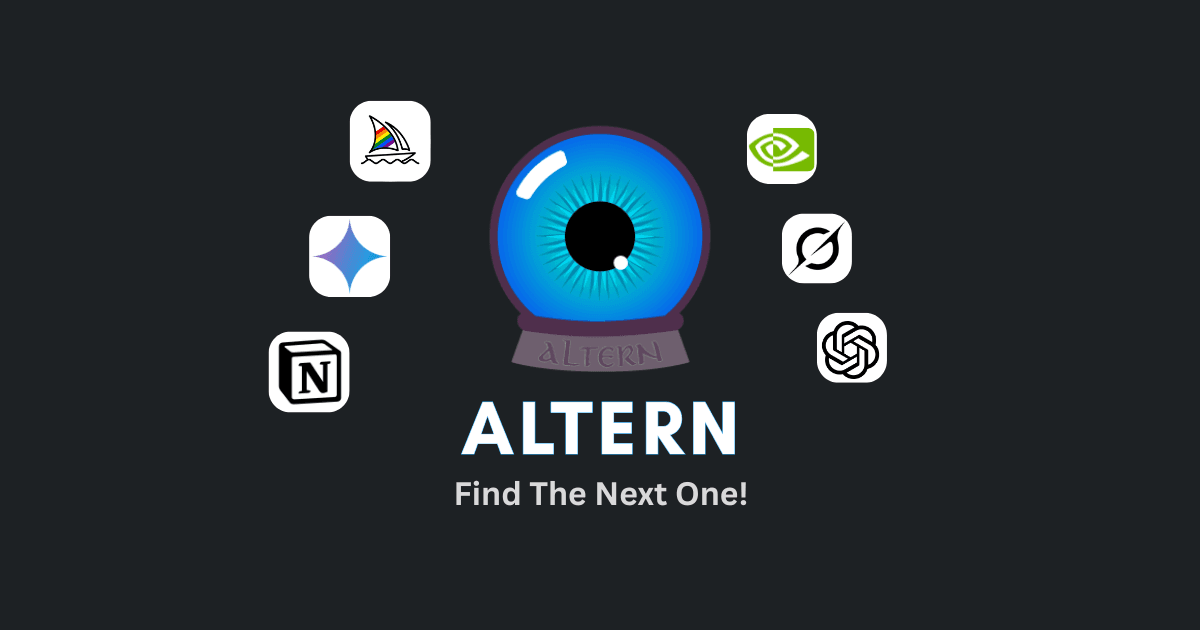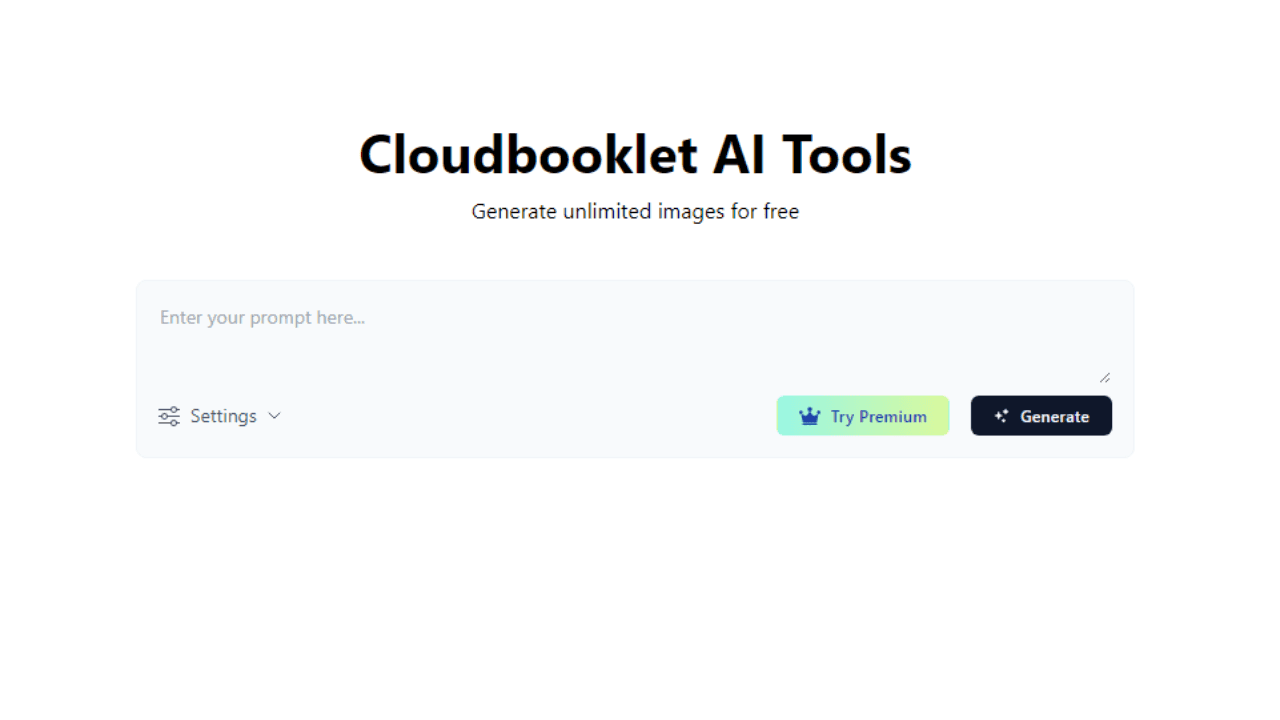Langfa.st vs. UndercoverGPT
Langfa.st
Langfa.st is a fast and minimal playground for testing and refining AI prompts. It supports over 50 large language models, including OpenAI, Anthropic, Mistral, Cohere, Google, and others — all available instantly without setup. You can insert variables, use Jinja2 templating, and compare outputs across models. There’s no need to sign up or bring your own API keys — it works out of the box. Langfa.st was built to eliminate the friction of existing tools: complicated UIs, required credentials, or overpriced subscriptions. It gives AI teams and prompt engineers a clean, disposable space to experiment, debug, and iterate — all in one tab. Free to use. You only pay if you need more volume or power features.
UndercoverGPT
UndercoverGPT is an innovative online tool designed to provide users with discreet and uninterrupted access to ChatGPT, even in environments where access to AI tools is restricted or blocked, such as schools, universities, or corporate workplaces. By using stealth technology and secure access methods, UndercoverGPT allows students, professionals, and curious users to continue benefiting from the powerful capabilities of ChatGPT—such as writing assistance, coding help, brainstorming, studying, and more—without triggering administrative blocks or firewalls. The platform positions itself as a solution for those who value productivity and creativity, but find themselves in digitally controlled environments. With an emphasis on privacy and usability, UndercoverGPT empowers users to stay connected to AI-powered tools no matter where they are.
Reviews
Reviews
| Item | Votes | Upvote |
|---|---|---|
| Works without login or API key | 1 | |
| Supports 50+ models out of the box | 1 | |
| Built-in support for variables and Jinja2 templating | 1 | |
| Instant response, no setup required | 1 | |
| Clean and distraction-free UI | 1 |
| Item | Votes | Upvote |
|---|---|---|
| No custom API key support (yet) | 1 | |
| Not ideal for running complex multi-turn chats | 1 |
| Item | Votes | Upvote |
|---|---|---|
| No pros yet, would you like to add one? | ||
| Item | Votes | Upvote |
|---|---|---|
| No cons yet, would you like to add one? | ||
Frequently Asked Questions
Langfa.st is designed for testing and refining AI prompts with over 50 language models available instantly, making it ideal for experimentation without restrictions. However, it does not focus on bypassing access limitations. In contrast, UndercoverGPT specifically targets users in restricted environments, providing discreet access to ChatGPT even in places like schools or workplaces. If your primary need is to access AI tools in a controlled setting, UndercoverGPT would be the better choice.
Langfa.st offers a clean and distraction-free UI, allowing users to experiment with AI prompts quickly and without the need for login or API keys. It supports multiple models and provides instant responses. UndercoverGPT, while focused on providing access in restricted environments, may not offer the same level of ease for quick experimentation as it is primarily designed for discreet access rather than prompt testing. Therefore, for quick AI experimentation, Langfa.st is the more user-friendly option.
Langfa.st includes features such as support for over 50 models, built-in variables, and Jinja2 templating, making it a robust tool for AI prompt testing. UndercoverGPT, on the other hand, focuses on providing access to ChatGPT in restricted environments without additional features for prompt experimentation. Therefore, Langfa.st offers more features related to AI prompt testing compared to UndercoverGPT.
Langfa.st is a fast and minimal playground for testing and refining AI prompts. It supports over 50 large language models, including OpenAI, Anthropic, Mistral, Cohere, Google, and others — all available instantly without setup. Users can insert variables, use Jinja2 templating, and compare outputs across models without needing to sign up or provide API keys.
Pros of Langfa.st include: it works without login or API key, supports over 50 models out of the box, has built-in support for variables and Jinja2 templating, provides instant responses with no setup required, and features a clean and distraction-free user interface.
Cons of Langfa.st include the lack of custom API key support at this time and it may not be ideal for running complex multi-turn chats.
Langfa.st is particularly beneficial for AI teams and prompt engineers who need a clean, disposable space to experiment, debug, and iterate on AI prompts without the friction of complicated UIs or required credentials.
Yes, Langfa.st is free to use. Users only pay if they need more volume or access to power features.
UndercoverGPT is an innovative online tool that provides users with discreet and uninterrupted access to ChatGPT, even in environments where access to AI tools is restricted or blocked, such as schools, universities, or corporate workplaces. It uses stealth technology and secure access methods to allow users to benefit from ChatGPT's capabilities, including writing assistance, coding help, brainstorming, and studying.
UndercoverGPT works by employing stealth technology and secure access methods to bypass restrictions and firewalls that may be in place in certain environments. This allows users to access ChatGPT without triggering administrative blocks, ensuring they can continue to utilize AI-powered tools for productivity and creativity.
UndercoverGPT is designed for students, professionals, and anyone who finds themselves in digitally controlled environments where access to AI tools is limited. It is particularly useful for those who need writing assistance, coding help, or support for brainstorming and studying.
While there are no user-generated pros listed for UndercoverGPT, its main advantages include providing discreet access to ChatGPT in restricted environments, enhancing productivity and creativity, and ensuring user privacy.
Currently, there are no user-generated cons listed for UndercoverGPT. However, potential drawbacks could include the ethical implications of bypassing restrictions set by educational or corporate institutions.
